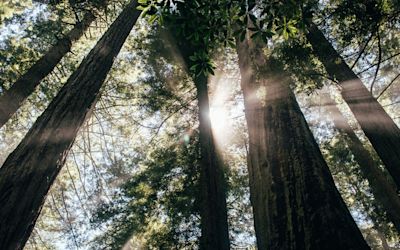Verifying Sustainability at Meaningful Scale: The Landscape Approach
As 2020 approaches, many brandowners and retailers are evaluating their performance and analyzing how they can achieve their sustainability goals. At the 2018 SPC Advance conference, hosted by The Sustainable Packaging Coalition, sustainability leaders from many different companies discussed the opportunities to demonstrate sustainability and make a difference through their sourcing.
Many companies have set goals that 100% of the fiber in their supply chains for packaging, paper and other materials come from recycled, certified and verified sources. These brands want greater visibility into their sourcing and a means to drive sustainability at scale.
“Mars is excited to be a partner in the development of Forests in Focus. We believe Forests in Focus will enable a deeper assessment of our fiber supply and give us line of sight to strategies that will make a difference in reducing the impacts to the landscape,” said Rachel Goldstein, Global Sustainability Reporting Senior Manager, Mars, Incorporated.
Recycled content makes up an important portion of the supply for many products. However, this might not be an option for all products, due to availability and product specifications. Rigorous forest certification has long been an important tool for providing assurance of sustainability. These certifications include the Forest Stewardship Council (FSC), the Programme for Forest Certification (PEFC) and the American Tree Farm System (ATFS). Yet, many brands and their suppliers find that certified content is often scarce. This is largely because a significant portion (more than half) of the wood flowing into supply chains originates in small parcels of forests, owned by families and individuals. While more of these landowners are becoming certified each year, in general, certification has not yet been widely adopted by this group, severely limiting certified content supplies.
Verification in sourcing is the use of a credible third party to verify the sustainability of sourcing. Increasingly, brands and retailers are seeking verification at a scale commensurate with their sourcing needs. For this reason, analysis at a landscape level offers a great approach to verifying sustainability. Rather than checking that specific practices were applied to specific tracts, a landscape approach considers how the practices implemented across an entire sourcing region add up and their performance for important sustainability values like water quality and biodiversity.

Forests in Focus is a new tool in development that takes just such an approach, offering a dynamic, landscape-level assessment of risks and opportunities for sourcing forest products. By visualizing and analyzing data from the US Forest Service and other trusted providers, Forests in Focus enables verification of fiber sourcing while complementing other sourcing tools, such as forest certification. The landscape scale offers meaningful level of sustainability analysis and visibility into issues that brands care most about such as high conservation value forests, the use of GMOs, or the vitality of local communities. This empowers brands and retailers to collaborate with forest product company suppliers, environmental nonprofit organizations, government agencies and local groups to engage family forest owners and create positive impact through improved wildlife habitat, clean water, and sustainable wood supplies.
“Staples supports the development of Forests in Focus because we believe that in forested areas containing many small family forest owners, landscape-level analysis of wood sourcing can be an important tool to help verify sustainable sourcing practices,” said Jake Swenson, Director of Sustainability, Staples.
Discover how Forests in Focus can help you reach your sustainability goals.
Sarah Crow is Senior Director of Sustainability Solutions for the American Forest Foundation. She has been with AFF since 2011. Sarah oversees technical elements of the ATFS certification program including international endorsement, standards development and interpretation, internal monitoring, third-party auditing, inspector training programs, market continuity, and growth initiatives. She also works to build collaborative partnerships across sectors and geographies and is an advisor for committees related to certification and smallholder engagement.
Sarah is a former Fulbright Scholar to Ukraine and holds a BS in Forestry from University of Montana and MS Natural Resources from University of Vermont. She also has training and experience in multi-stakeholder facilitation and environmental management systems auditing.
Related Articles

October 29, 2024
Branching Across the Aisle: How Building a Voluntary Carbon Market Benefits Rural Communities & The Planet
With the presidential election right around the corner, our television screens and social media feeds are filled with divisive messages and rhetoric. However, in a time where finding common ground seems nearly impossible, there is at least one thing that Americans on both sides of the aisle support: our forests.


October 15, 2024
A New Way to Buy Carbon Credits: The American Forest Foundation Carbon Auction
We believe there is a better way to buy carbon credits – a way to create contracts which more directly tie buyers and landowners to one another as true partners in a great enterprise. A way which reduces the friction, opacity and transaction costs of the current market.